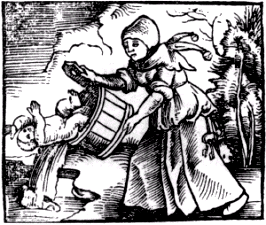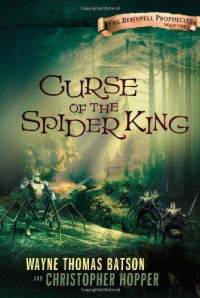Speculative Faith: The Next Generation
Like many good novels, this site has re-launched with a âhookâ and just kept going. Readers can wait to learn the backstory, right? (Perhaps you disagree â if so, say so.)
Some of you may know this, having been keeping up with this site for a while.
 Speculative Faith began in July 2006, when many like-minded writers â including Carol Collett, Shannon McNear, Rebecca LuElla Miller, Mirtika Schultz and Stuart Stockton â pitched in to put together a co-op blog. Over the years, several others, including many published authors, joined in the discussions over all kinds of topics relating to Christian fantasy and science fiction.
Speculative Faith began in July 2006, when many like-minded writers â including Carol Collett, Shannon McNear, Rebecca LuElla Miller, Mirtika Schultz and Stuart Stockton â pitched in to put together a co-op blog. Over the years, several others, including many published authors, joined in the discussions over all kinds of topics relating to Christian fantasy and science fiction.
The original site is still there. But whatâs also there are stacks of comments that have nothing to do with Speculative Faith. They are more about, oh, jewelry, bodily enhancement, digital piracy, and other things I will not mention because if I did, the adults would not let you read this blog.
Thatâs partly why weâve moved. And though we have fewer contributors now than we did those first days (I myself started contributing in October 2006), weâre really just getting started.
Itâs like The Doctor â our regeneration cycle is complete. New face, new plots: same entity.
Our new site allows for not only no spam, but faster load times, better searching and improved organization. Perhaps best of all, we have integration with the all-powerful social networks. You can find us on Facebook, or keep up with updates via Twitter.
And as this month continues, youâll likely see me (this siteâs designer) making a tweak or two. A graphic might suddenly be there; a style adjustment made over here.
Any ideas? Post them below. And yes, weâre looking for contributors. Too many voices are out there to ignore â and like the better publishers, we want to know what kind of undiscovered talent in the âsphere will help draw an audience.
Mirtika Schultzâs words four years ago are still true of our mission today:
~~We believe that there is a diverse and sizable audience hungry for Christian speculative literature.
~~We want to find you.
~~We want you to find us.
~~We want to mobilize a reading and writing community that will impact the future editorial acquisitional decisions of CBA publishing houses. Right now, they are not favorably inclined toward speculative fiction.
~~We want better and more varied and just plain MORE novels from CBA publishing houses in our genre.
~~We intend to promote the good speculative literature out there, works that showcase talent as well as spiritual truth.
Does all that excite you? Had you given up hope of ever finding such novelsâand enough of themâto suit your reading needs?
Do you believe this, as we do? â Truth and wild imaginings are not incompatible. Space operas, allegories,  Tolkienesque fantasies, hard science fiction tales, science fantasies, hip urban fantasies, magical realism stories, slipstream novels, surreal poetry . . . God can be glorified in these types of creative expressions.
So, in the words of Captain Jean-Luc Picard: âEngage.â



































 Either way, it was a very public exit. And it caused plenty of public acclaim, with some sporadic outrage. Rice herself posted many of them to
Either way, it was a very public exit. And it caused plenty of public acclaim, with some sporadic outrage. Rice herself posted many of them to 
 The author of multiple Star Wars novels and the sci-fi trilogy Firebird,
The author of multiple Star Wars novels and the sci-fi trilogy Firebird, 



